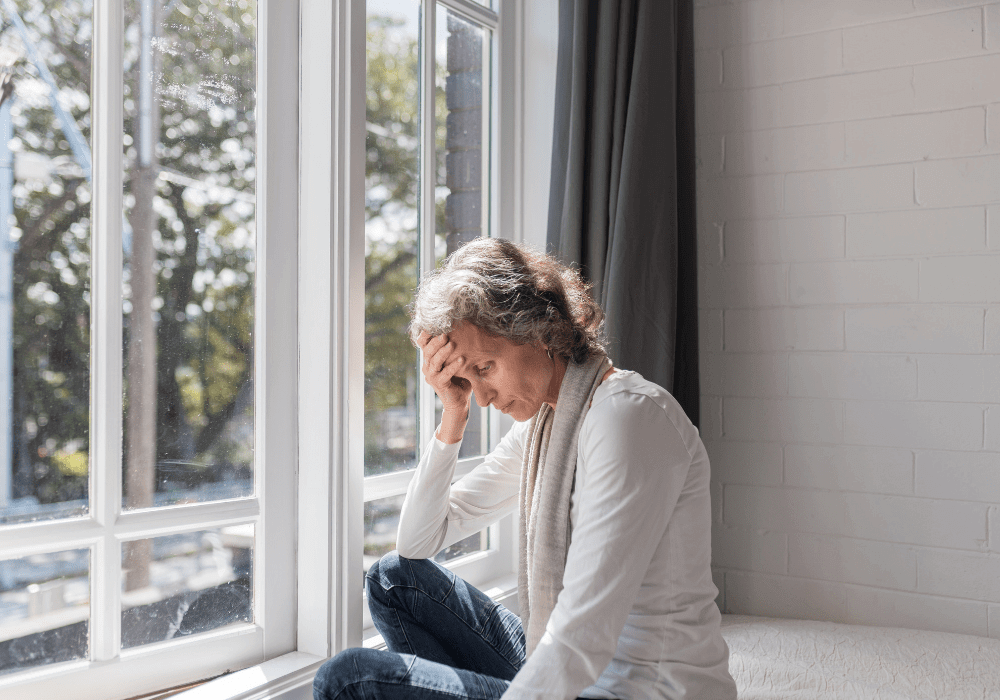What is Menopause and How Can I Manage the Symptoms?

Menopause, which quite literally means the pause of menses (your period), is likely something you’ve heard of before: maybe from your mom or an older sister or friend. While some women can manage to skate right through this time with little to no symptoms, others experience all the classics: hot flashes, mood swings, night sweats, and trouble sleeping. But, although people are quick to talk about a few of the symptoms they’re experiencing, you will notice that far fewer people talk about the whole picture. That’s exactly why we’re here to give you the bigger picture of what life after menopause looks like. Knowing what you can expect can help to alleviate your worries, help you effectively treat your symptoms, and lower the risks of certain conditions and diseases that can come as a result.
What is happening to my body during menopause?
The transition to menopause formally called perimenopause, takes place over the course of several years. You’ll know you are officially in menopause when you have not gotten your period for 12 months straight. The ovaries gradually stop producing estrogen resulting in hormonal fluctuations as the body adjusts to what can be characterized as the shut-down of the ovaries. By the 12-month mark, your ovaries have significantly reduced the production of both hormones estrogen and progesterone.
This can result in some metabolic and physiological changes that over time affect your body’s composition.
Managing your menopause symptoms
Women often will try to manage their menopause symptoms on their own for fear of embarrassment in reporting the issues they’re experiencing to their provider. But there’s no need to be embarrassed and we encourage you to speak openly about your symptoms and work with your healthcare provider to find an effective treatment. That may come in the form of hormonal replacement therapy, non-medical methods like exercise and a modified diet, or other treatments tailored to your needs.
Many of the changes that occur during menopause – anxiety, mood swings, and depression to name a few – are not physical changes but are the result of hormone changes. When coupled with physical changes, these emotional changes can wreak havoc on your life and sleep schedule. That’s why it’s so important to speak to your provider who can assist you in developing a treatment plan that’s right for you.
What does life after menopause look like?
Life after menopause doesn’t have to look that different from life before, especially if you maintain an open line of communication with your doctor.
There are some ways you can minimize your menopausal symptoms (we’ll talk a little more about that later) that can help you maintain a healthy lifestyle. But you should also make sure you are getting regular health screenings and staying up to date on vaccines in order to prevent health concerns from becoming a bigger deal later.
What can I do to minimize my symptoms?
Increase exercise
Exercise, no matter the intensity, is highly beneficial for women who are post-menopausal. As we’ve mentioned, menopause can result in weight gain, so in order to counteract that change in body composition, physical activity is necessary. Want to know something pretty great? This is one area where being post-menopausal gives you a leg up: physical activity has a greater impact on your body after menopause than before. So even if you engage in light physical activity, you will likely see the positive effects. Small lifestyle changes like gardening and walking can make a big difference.
Watch what you eat
The best way to maintain your target body composition may require a permanent change in your lifestyle and routine rather than the dieting approaches you may have taken in the past. Instead of taking a restrictive dieting approach, focus on just watching what you eat and drink; choose nutritious foods while limiting processed foods, alcohol, and sweets.
Get plenty of sleep
A well-known result of menopause is a lack of sleep which can then affect hormones that control other aspects of your body. Practicing good sleep habits means trying to get 7-9 hours of sleep every night and implementing practices that promote quality sleep: regular exercise, decreased caffeine, avoiding long naps, establishing a relaxing bedtime routine, and creating a comfortable sleep environment.
Conclusion
That wraps up our guide on what there is to know about menopause. For more information or to set up an appointment in the Hampton Roads area, contact us today.